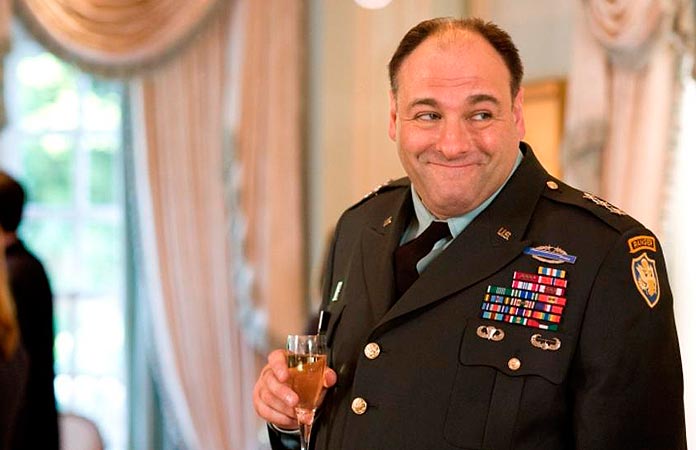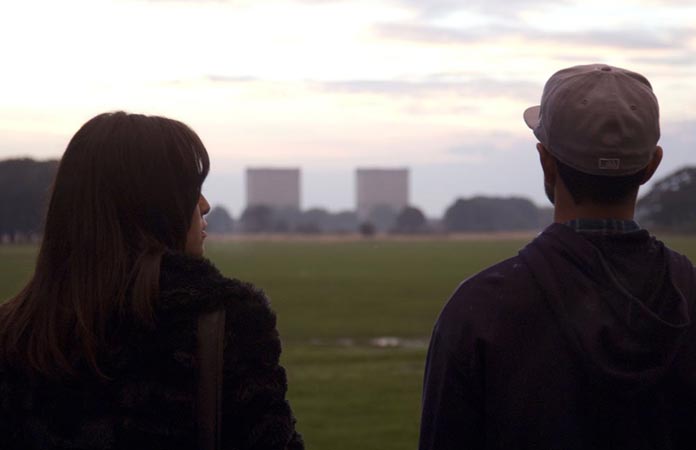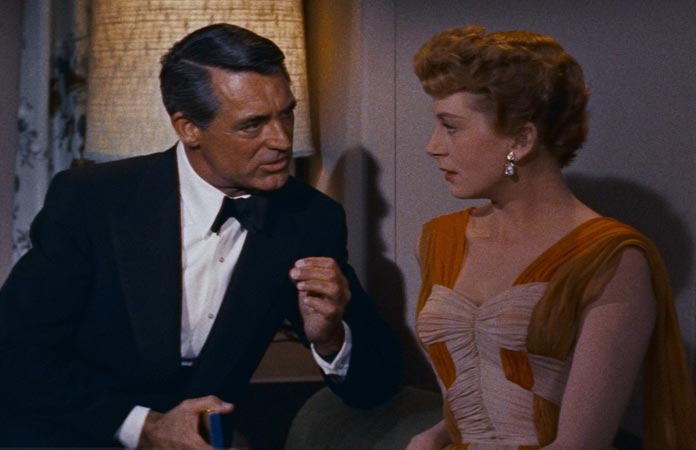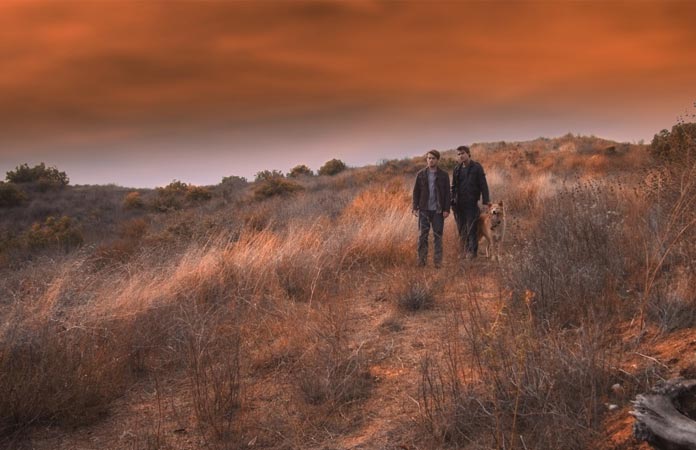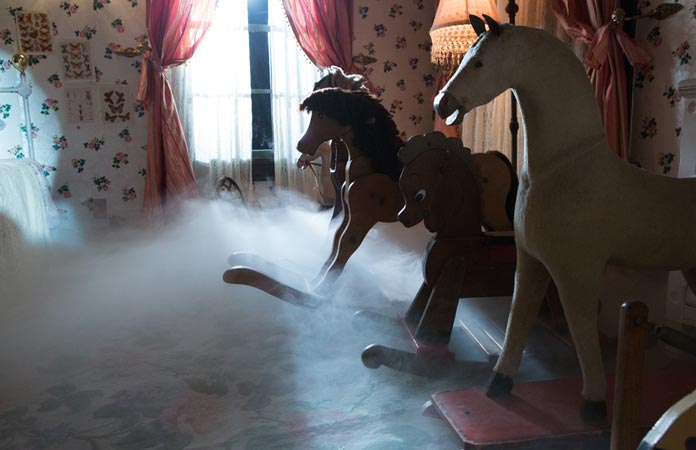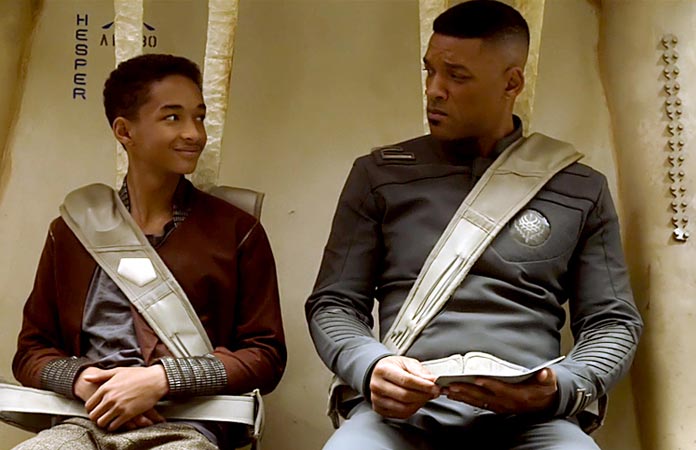Mourning The Loss Of James Gandolfini, 1961 – 2013
Published on June 20th, 2013 in: Movies |By Paul Casey
James Gandolfini is one of those people who didn’t need to do anything else following his most famous role. The range of his performance from the start of The Sopranos to its end was incredible, particularly his ability to make the audience really care about a character who was so despicable. He brought the most insightful human elements to the kind of character who is so often played for simple cathartic thrills or to make dubious Sticking-it-to-The-Man crowds whoop it up. He never let you forget the kind of person Tony Soprano was, but the loss of what remained of his humanity and the perversion of all around him still made you cry.
Movie Review: iLL Manors
Published on June 20th, 2013 in: Culture Shock, Current Faves, Found Footage, Movie Reviews, Movies, Music, Reviews |iLL Manors, the turbulent, invigorating debut film from Ben Drew (a.k.a. hip hop artist Plan B), begins with Drew rapping about the harsh realities of life in a council estate. It’s the kind of intro that will either suck you in or turn you off immediately, but it will definitely get your attention. You should stick with the film, though, because it reveals an incredible depth of insight into and sympathy for a segment of society that is so frequently misunderstood, ignored, or forgotten: kids who grew up in the social services/foster care system and whose lives have been shattered as a result.
DVD Review: The ABCs of Death
Published on June 19th, 2013 in: Current Faves, DVD, DVD/Blu-Ray Reviews, Feminism, Horror, Movie Reviews, Movies, Reviews, Science Fiction |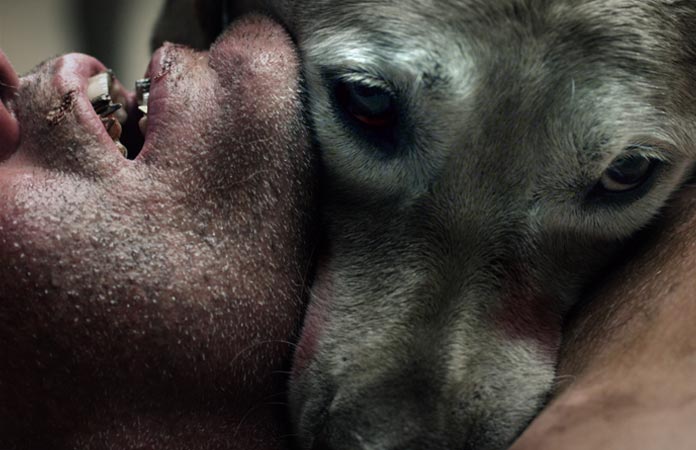
D Is For Dogfight by Marcel Sarmiento
Even to a horror fan, the idea of a film omnibus devoted to death could seem a bit morbid. The ABCs of Death is a complex, thoughtful glimpse at not only death, but also the work of 26 filmmakers from 15 different countries. Each director was assigned a letter and given complete artistic freedom to pick a word from the alphabet and design his or her own cinematic interpretation of death.
DVD Review: The Cary Grant Film Collection
Published on June 17th, 2013 in: DVD, DVD/Blu-Ray Reviews, Movie Reviews, Movies, Retrovirus, Reviews |It is nearly impossible to write about Cary Grant without mentioning the words suave, dashing, elegant, or handsome, so let’s just get all of those words out of the way now. Twentieth Century Fox has released a six-DVD box set of a collection of Cary Grant films and it’s a decent overview of his career.
Assemblog: June 14, 2013
Published on June 14th, 2013 in: Assemblog, Canadian Content, Copyright/Piracy, Legal Issues, Movies, Music, Science Fiction, Trailers, TV, Upcoming Events |New this week on Popshifter: Emily reviews Dark, the latest from the British Electric Foundation; Chelsea appreciates the “exuberant energy” of CSS’s Planta; Melissa thinks Gap Band VII has “moments of brilliance” and enjoys the “invariably perfect” Volume 4 of Music from True Blood; Jeff introduces us to his next Waxing Nostalgic series on cover albums; and I review the new film Peaches Does Herself from the inimitable Peaches and the “remarkably original” John Dies At The End, now on DVD.
DVD Review: John Dies At The End
Published on June 14th, 2013 in: Comedy, Current Faves, DVD, DVD/Blu-Ray Reviews, Horror, Movie Reviews, Movies, Reviews, Science Fiction |John Dies At The End is a remarkably original movie, even though it’s based on a novel. Director Don Coscarelli, who also adapted the screenplay, has merged several different, potentially conflicting styles— horror, comedy, sci fi—into a movie that resides firmly in its own universe(s).
Movie Review: Peaches Does Herself
Published on June 10th, 2013 in: Canadian Content, Current Faves, Feminism, LGBTQ, Movie Reviews, Movies, Music, Reviews, Teh Sex |You don’t need to know her music beforehand to “get” the new concert-cum-performance-art film from Peaches, but even fans will marvel at how accurately the songs in Peaches Does Herself tell the story, as if they were written expressly for the film. Furthermore, although the narrative is fairly simple, the concepts within it are complex, including sex, romance, gender, confusion, anger, and acceptance.
Assemblog: June 7, 2013
Published on June 7th, 2013 in: Comedy, Horror, Movies, Science Fiction, Trailers, TV |New this week on Popshifter: Melissa B. calls the expanded edition of Doris’s Did You Give The World Some Love Today, Baby “mind blowing and brilliant” and thinks Pokey LaFarge’s self-titled debut is “excruciatingly fine”; Cait wants to remind everyone of Dudley Moore’s musical talents in her review of From Beyond The Fringe; I chat with Jen and Sylvia Soska, directors of American Mary; Chelsea explores the “eclectic style” of Young & Wild; Lisa hopes that After Earth will “represent a step back toward redemption for M. Night Shyamalan”; and Jeff gives his first impressions of “Came Back Haunted,” the new Nine Inch Nails single.
Movie Review: After Earth
Published on June 6th, 2013 in: Movie Reviews, Movies, Reviews, Science Fiction |If you’ve been to any of the tentpole genre movies that have come out this summer (or even in the last year), you’ve probably seen ads for After Earth. This sci-fi vehicle features real-life father and son Will and Jaden Smith as Rangers who get stranded on a hostile Earth in the distant future. What you may not know, because the marketing downplayed it, is that it was directed and co-written by M Night Shyamalan, who was once lauded as a brilliant auteur but who has fallen into disfavor.
I never have been in the Shyamalan-hate camp. Like most people who saw it, I enjoyed The Sixth Sense, but I also enjoyed his other movies that I’ve seen. Signs and Unbreakable put a novel twist on the alien-invasion movie and the superhero movie, respectively, even if looking back on it, the big reveal in Unbreakable is kind of problematic. The Village had an interesting take on the post-9-11 security era, even though you rarely see that discussed. I even have an unreasonable love for the much-maligned Lady in the Water, although admittedly I’m a myth-geek who first encountered Joseph Campbell in grade school.
With all of that said I will admit that I haven’t yet seen The Last Airbender, The Happening, or Devil, which have as much to do with the sinking of Shyamalan’s stock as his earlier work. And After Earth is unlikely to be the movie that rehabilitates his reputation.
DVD Review: Young & Wild
Published on June 5th, 2013 in: Culture Shock, DVD, DVD/Blu-Ray Reviews, Feminism, Found Footage, LGBTQ, Movie Reviews, Movies, Reviews |Eighteen-year-old Daniela has the makings of a precocious sex geek. She is bisexual and game to playing with new partners, and she writes about her adventures in her blog, “Jovenes & Alocada.” Two factors make Daniela’s story a little more notable: She grew up in Chile during the post-Pinochet era, and her family is deeply involved with the Evangelical church. Daniela’s experiences as a queer teenager comprise the story of Young & Wild.
